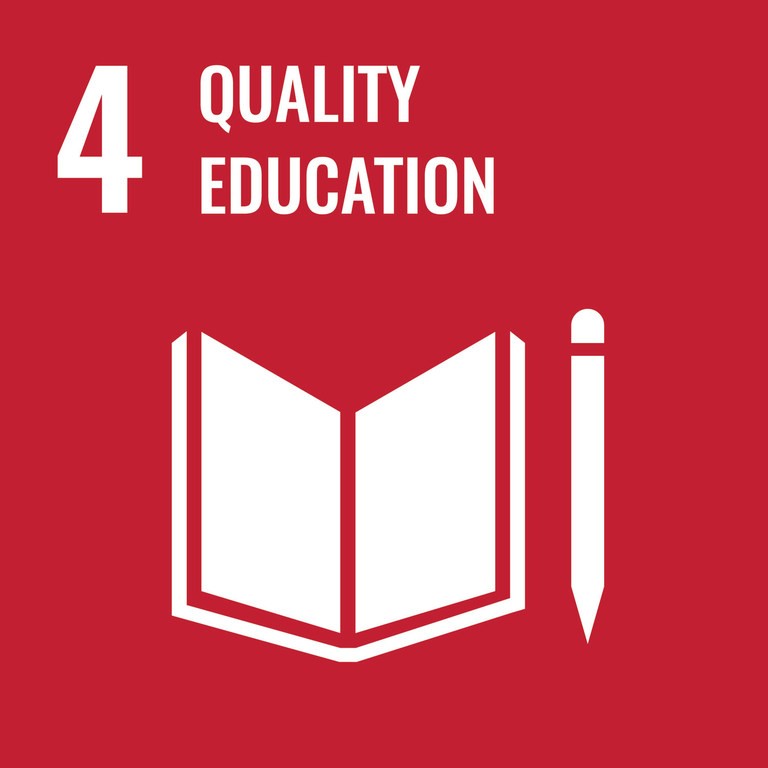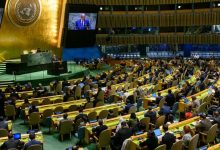UN Drops Big Warning: We’re Running Low on Teachers!
report from UNESCO, the UN agency championing education, announced this week.
The global teacher shortage alert was issued at a meeting on Monday of the International Task Force on Teachers for Education in Johannesburg, South Africa, where the UN Secretary-General’s High-Level Panel on the Teaching Profession announced a new set of recommendations to safeguard future learning for all.
Quality education for ‘learning societies’
“Now, more than ever, we need to move towards learning societies. People everywhere need high-quality skills, knowledge and education. Above all, they need the best teachers possible,” UN chief António Guterres said in his video message to the forum.
Tweet URL
UNESCO points out that seven out of 10 teachers at the secondary level will need to be replaced by 2030, along with over half of all existing teachers who will have left the profession by the decade’s end.
Although it’s a global issue, the teacher shortage is impacting sub-Saharan Africa the most, where an estimated 15 million new teachers are needed by 2030.
Teachers overwhelmed
The effect of a worldwide teacher shortage is profound, creating larger class sizes, overburdened educators, educational disparities and financial strain on school systems, impacting educational quality and access.
Building on the landmark UN Summit on Transforming Education in 2022 and supported jointly by the International Labour Organization (ILO) and UNESCO, the high-level panel’s recommendations are focused on core aspects: dignity, humanity, diversity, equity and inclusion, quality, sustainability, innovation and leadership.
Support to educators
“Just as teachers support us all, it’s time to support teachers. Let’s make sure they have the support, recognition and resources they need to provide quality, relevant education and skills for all,” the Secretary-General said, advocating for the wide implementation of the guidelines produced by the education experts.
Responses to the challenge include recommendations to cultivate an environment where teachers can drive educational change, foster critical thinking and promote modern learning skills.
The panel advocates for teachers as collaborative partners rather than mere purveyors of knowledge. Adequate funding for education systems and technology integration are key, with a focus on supporting the use of digital learning and other technology.
Financing the future
Attrition rates among primary teachers almost doubled from 4.62 per cent globally in 2015 to 9.06 in 2022, with teachers often leaving the profession within the first five years, the report reveals.
According to recent estimates, financing additional teachers will cost $12.8 billion for universal primary education and $106.8 billion for universal secondary education.
In total, the annual additional financing needed to cover salaries at primary and secondary levels by 2030 is estimated at $120 billion if Sustainable Development Goal 4 is to be reached, envisaging “inclusive and equitable quality education” and the promotion of “lifelong learning opportunities for all”.
“Getting there means investing in teacher training, establishing professional teaching standards, reflecting teachers’ voices in policy decisions and creating national commissions to tackle teacher shortages,” Mr. Guterres said.

United Nations
SDG 4
SDG 4: EDUCATION FOR ALL
- Ensure all children complete free, equitable and quality education and have access to quality early childhood development
- Increase number of young adults with employment skills
- Eliminate gender disparities and ensure equal access to all levels of education
- Ensure all youth and most adults achieve literacy and numeracy
- Build and upgrade education facilities to be child, disability and gender sensitive
- Increase number of qualified teachers
Without additional measures, 84 million children will be out of school, 300 million students will lack basic numeracy and literacy skills and only one in six countries will achieve the target of universal secondary school completion.
Simon Blake is an experienced journalist deeply interested in international affairs and global development. Having spent years reporting on humanitarian issues, he offers a unique perspective in his coverage of United Nations news.




In my opinion, tackling the global teacher shortage is crucial for fostering quality education and ensuring a sustainable learning environment for future generations. It’s alarming to see the projected number of teachers that will need to be replaced by 2030, especially in regions like sub-Saharan Africa. We must prioritize investing in education and supporting teachers to overcome these challenges.
Do we have any data on how this teacher shortage is being addressed in sub-Saharan Africa specifically?
Yes, there are various initiatives underway in sub-Saharan Africa to address the teacher shortage, such as programs to train more educators locally, partnerships with international organizations to recruit teachers from other countries, and efforts to improve retention rates through better working conditions and support systems for teachers.
As a former educator myself, I can attest to the critical role teachers play in shaping the future. It’s worrying to see the UN sounding the alarm on the shortage. We must prioritize investing in education to ensure a brighter tomorrow for all.
As an educator myself, I can attest to the severity of the global teacher shortage crisis. It’s imperative that immediate action is taken to address this issue to ensure quality education for all students worldwide.
As a former educator, I believe investing in teacher training and support is crucial to address the global teacher shortage. We must prioritize quality education for future generations.
Is there a plan in place to address the teacher shortage in sub-Saharan Africa?
Yes, addressing the teacher shortage in sub-Saharan Africa is crucial. UNESCO’s recent report highlights the urgent need for 15 million new teachers by 2030 in the region. The proposed recommendations aim to tackle this challenge and ensure quality education for all.
It’s concerning to see such a warning from the UN about the shortage of teachers worldwide. Quality education is crucial for the future, and having well-trained and dedicated educators is key to achieving that. The impact on sub-Saharan Africa is especially alarming, and urgent action is needed to address this issue.
Isn’t it alarming to see such a high demand for teachers in sub-Saharan Africa by 2030? What actions are being taken to address this critical issue?
It is indeed concerning to witness the escalating need for teachers in sub-Saharan Africa by 2030. Various initiatives are being implemented to tackle this pressing issue, such as teacher training programs, recruitment drives, and partnerships with local communities to encourage more individuals to pursue a career in education.
It’s alarming that we’re facing such a critical shortage of teachers globally. Without enough qualified educators, the quality of education will undoubtedly suffer, affecting countless students around the world.
The global teacher shortage is a critical issue that needs immediate attention. We must prioritize investing in education and supporting teachers to ensure quality learning for all students.
Do we have any specific plans in place to address the teacher shortage crisis in sub-Saharan Africa?